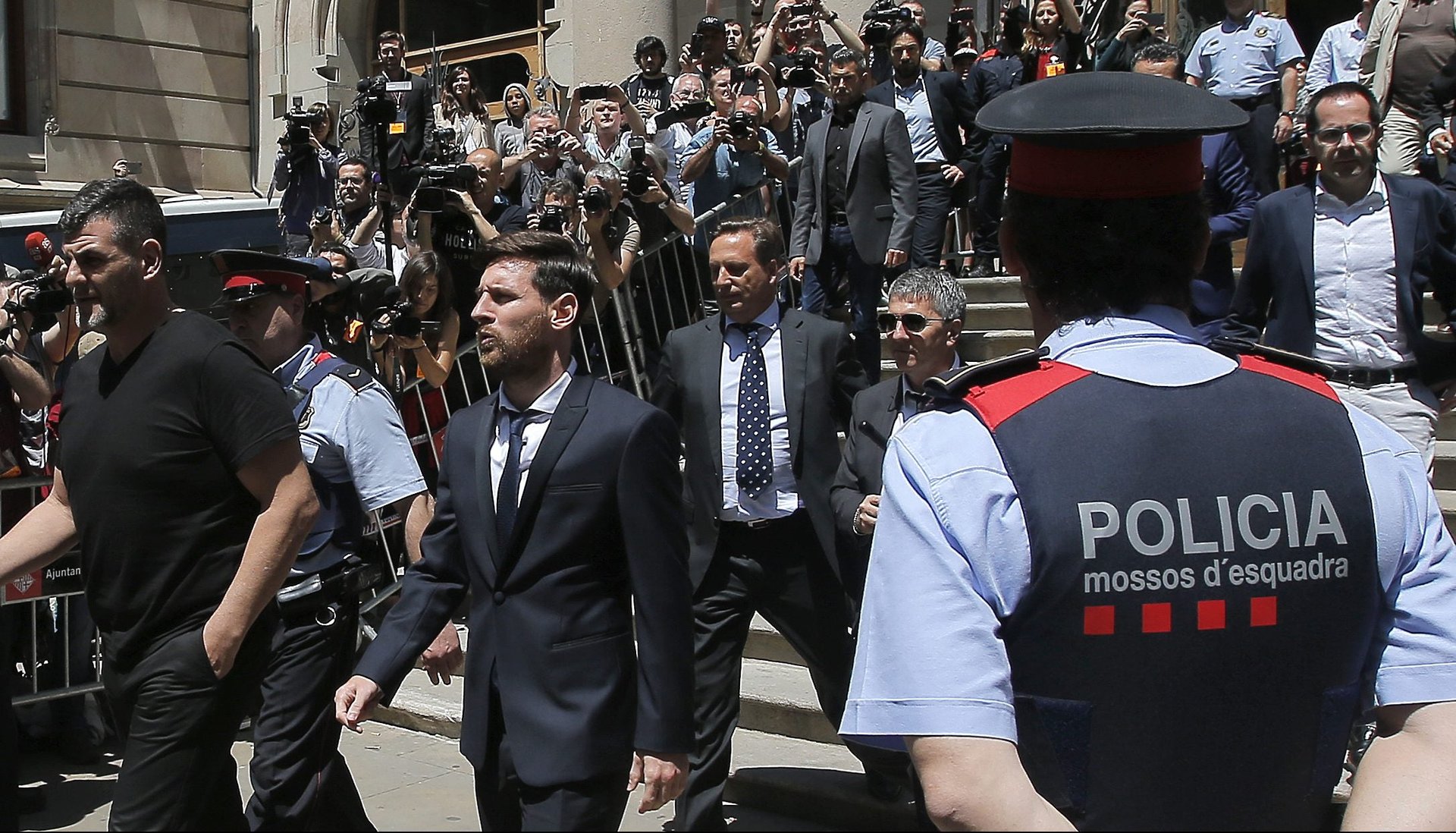Messi and other soccer stars avoid taxes by exploiting a basic human right
At the heart of the tax-evasion case against soccer star Lionel Messi is the capitalization of a basic human right: the ability to control your own image.


At the heart of the tax-evasion case against soccer star Lionel Messi is the capitalization of a basic human right: the ability to control your own image.
Messi and his father were sentenced by a Spanish court today to 21 months in prison for defrauding the state of €4.1. million ($4.5 million). The Messis—who, as first-time offenders, are unlikely to spend time in prison—were charged with setting up shell companies in low-tax jurisdictions like Uruguay and Belize to sell Leo’s image rights to corporate sponsors. The pair, who have since settled their tax bill, blamed their financial advisors.
Selling one’s image is a long-established, and generally legal, source of revenue for European athletes. The laws governing the rights to one’s image vary from country to country (and in the US, from state to state) but they’re rooted in the concept of a right to privacy, which includes the right to control one’s identity and image. The European Court of Human Rights recognizes “the right to the protection of one’s image.” In a 2012 decision that ruled Princess Caroline of Monaco could block the use of her photos by a magazine, the court said:
“The right to the protection of one’s image is thus one of the essential components of personal development. It mainly presupposes the individual’s right to control the use of that image, including the right to refuse publication thereof.”
In exchange for the rights to their images, European athletes often receive compensation from their teams, who can then use them for marketing and sponsorships. Sometimes the players receive it as straight pay, but it’s increasingly common for athletes to set up separate corporations for the purposes of selling their images. The teams and sponsors pay the image-rights company, and the athlete collects a dividend, which is taxed at a lower rate, or a loan.
Image-rights corporations are ripe for abuse, and it’s often the basis for European tax prosecutions against athletes. Teams, which compete for players by offering the highest salary after taxes, are eager to shift pay from salary to image-rights compensation, even if the athlete has no profile or image worth selling. To guard against it, Spanish law says that teams can’t pay more than 15% of compensation as rights fees. And players are tempted to establish their companies in low-tax countries.
In Messi’s case, he sold his image rights to a Belize company owned by his mother for $50,000. That company, through another shell, then entered into a sponsorship deal with Adidas for €9 million, none of which was taxed in Spain. Messi’s fellow Barcelona stars Neymar and Javier Mascherano are among the others charged with tax fraud stemming from image rights, while retired player Luis Figo’s image rights company is caught up in a Portuguese investigation into tax fraud called Operação Furacão (Operation Hurricane).
Messi may be the most high-profile player snared by a crackdown on image right exploitation. But he almost certainly won’t be the last.
Correction: An earlier version of this article incorrectly said a court decision concerned a German princess. She is from Monaco.